By publicly taking credit for killing Qasem Soleimani in a drone strike in Iraq, the United States is likely to face retaliation by Iran. Caitlin Talmadge writes that leaving plausible deniability might have reduced pressure on Iran to retaliate heavily. This piece originally appeared in the Washington Post on January 3.
Within a few hours of the early Friday drone strike in Baghdad that killed the notorious leader of Iran’s Revolutionary Guard Corps’ Quds Force, Maj. Gen. Qasem Soleimani, the world knew the United States had targeted him. Although the strike is a major tactical triumph for the United States, the decision to kill Soleimani — and to tout it publicly — could provoke dangerous strategic blowback.
No one should shed any tears that Soleimani is gone. He had the blood of thousands and thousands of people on his hands, including many civilians and American service members.
Soleimani was the architect of Iran’s violent extremism and proxy wars throughout the Middle East, from Lebanon to Syria to Yemen to Iraq. He not only ran Iran’s paramilitary operations for more than two decades but also linked those operations to a larger foreign policy designed to compensate for Iran’s conventional military weakness and to counter the political influence of the United States and its Arab Gulf allies.
These are all reasons that the calculus regarding the drone strike that killed Soleimani should have been quite different from the decision to send a SEAL team after Osama bin Laden in Pakistan in 2011. By the time of that raid on Abbottabad, bin Laden was a bedraggled figurehead holed up in a self-made prison, cut off from day-to-day control of the terrorist organization he had founded. No government publicly defended him or claimed him as their own, and the U.S. decision to publicly announce his death raised only minimal prospects of escalation from his stateless followers.
Soleimani, by contrast, was probably the second most important government official in Iran after Supreme Leader Ayatollah Ali Khamenei. This makes his death a significant blow to Iran, and it also means that the U.S. decision to take credit it for it in such a public manner is likely to prompt Iranian retaliation. It is impossible to predict the exact timing and nature of such retaliation. But Iran has plenty of damaging ways to escalate, ranging from attacking U.S. or allied forces in the region, to sabotaging oil infrastructure or transport, to quickening the pace of its nuclear program.
Both the Bush and Obama administrations reportedly passed on opportunities to strike Soleimani precisely because of concerns about escalation. Such worries are not new. Historically, and especially during the Cold War, fear of blowback was a reason to conduct targeted killings and other sensitive operations through covert means — ones that lent plausible deniability to the accused and thus decreased pressure for retaliation by the targeted state. This is why the United States concealed its campaign to arm the mujahideen fighting the Soviets in Afghanistan, for example. It deliberately supplied non-U. S. weapons to its proxies, so that even when the Soviets observed the new weapons, they didn’t necessarily have to respond by directly confronting the United States.
In this case, we don’t know if the Trump administration considered alternatives such as credibly threatening Soleimani without killing him, killing him in a way that left more ambiguity over who was responsible, or conducting the strike but simply refusing to confirm or deny responsibility. Those steps might have done more to achieve the administration’s vaguely stated objective of “deterring future Iranian attack plans,” because they would have left a bit more room for Iran to save face or back down. Instead, by conducting such a high-profile attack and announcing it to the world when regional tensions are already so high, the Trump administration has maximized the likelihood that Iran will feel compelled to respond in a big way.
It is possible, of course, that Iran will find a way to deflect the pressure for escalation, perhaps by redirecting domestic attention to Soleimani’s funerals (one in Iran, one in Iraq, reportedly). Iranian retaliation might also be delayed or covert.
It is possible, too, that the Trump administration has carefully considered the prospects for serious Iranian escalation in response to the strike, is confident that the benefits of a highly public strike outweigh those potential risks and has thoroughly prepared to mitigate those risks to U.S. forces, installations, citizens and allies in the region. But nothing in the administration’s prior pattern of national security decision-making would lead us to expect that Trump and his aides engaged in this sort of deliberative analytical process.
A cynic might note that crowing about the strike is politically convenient for the president in an election year, and that many in Trump’s administration would in fact welcome war with Iran. Indeed, Trump has been spoiling for a fight with Tehran since he entered office and tore up the Iran nuclear agreement, even though Iran was complying with it. Trump’s pals Benjamin Netanyahu in Israel and Mohammed bin Salman in Saudi Arabia have no doubt been egging him on, relishing the prospect of Uncle Sam confronting their longtime regional nemesis.
Unfortunately, the last thing America needs is another war in the Middle East. The Trump administration’s own published defense strategy says as much and emphasizes the need to put U.S. resources and attention elsewhere, especially Asia. Doing an end-zone dance about killing Soleimani is likely to have the opposite effect. It will further entrench the United States in a region that the president himself has repeatedly stated we should be seeking to leave.
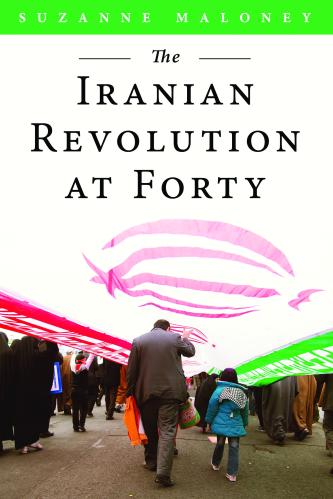
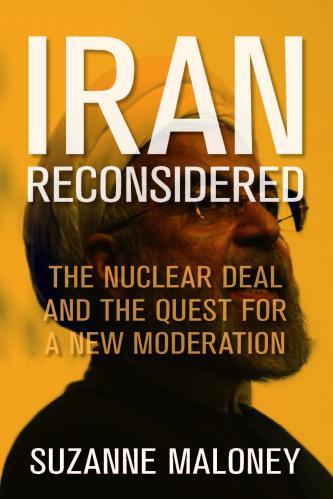
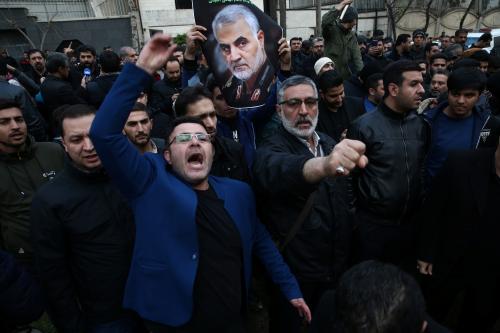
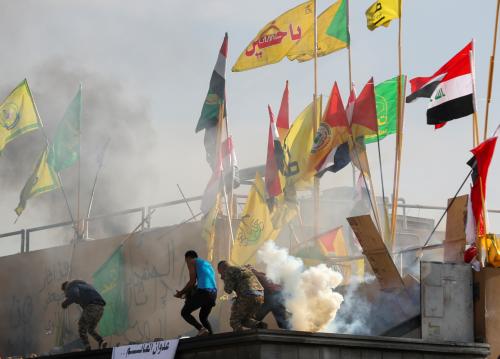
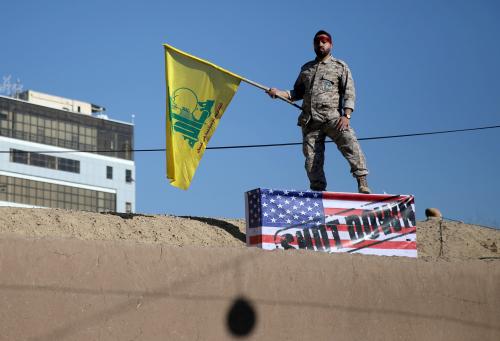



Commentary
Was it risky for the US to take public responsibility for killing Soleimani?
January 7, 2020